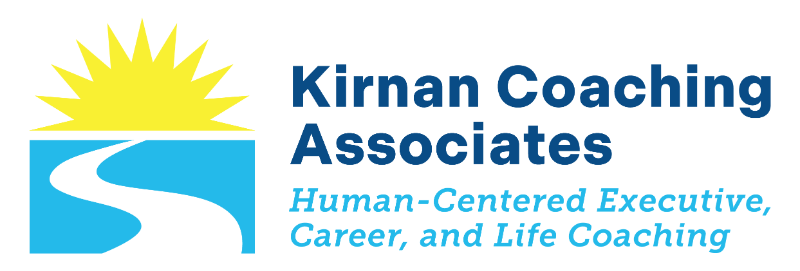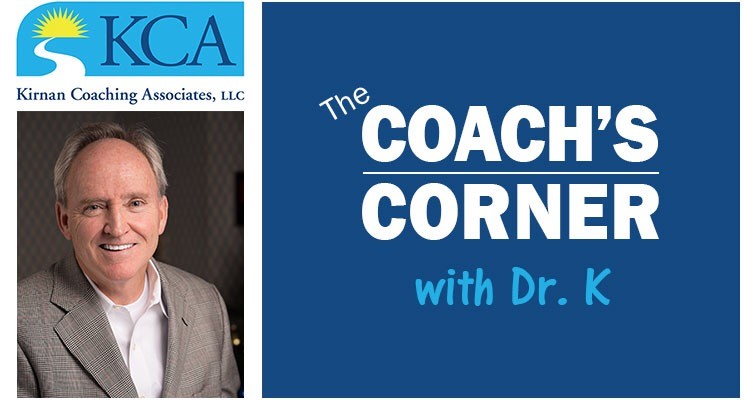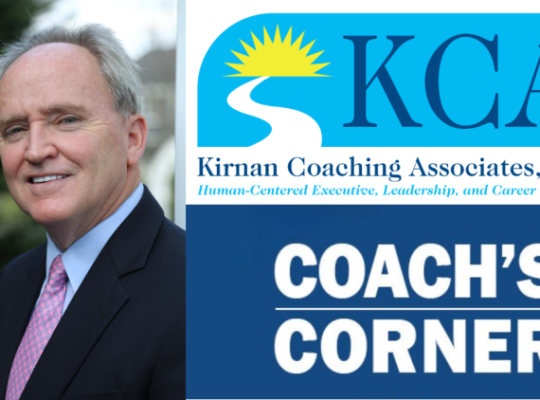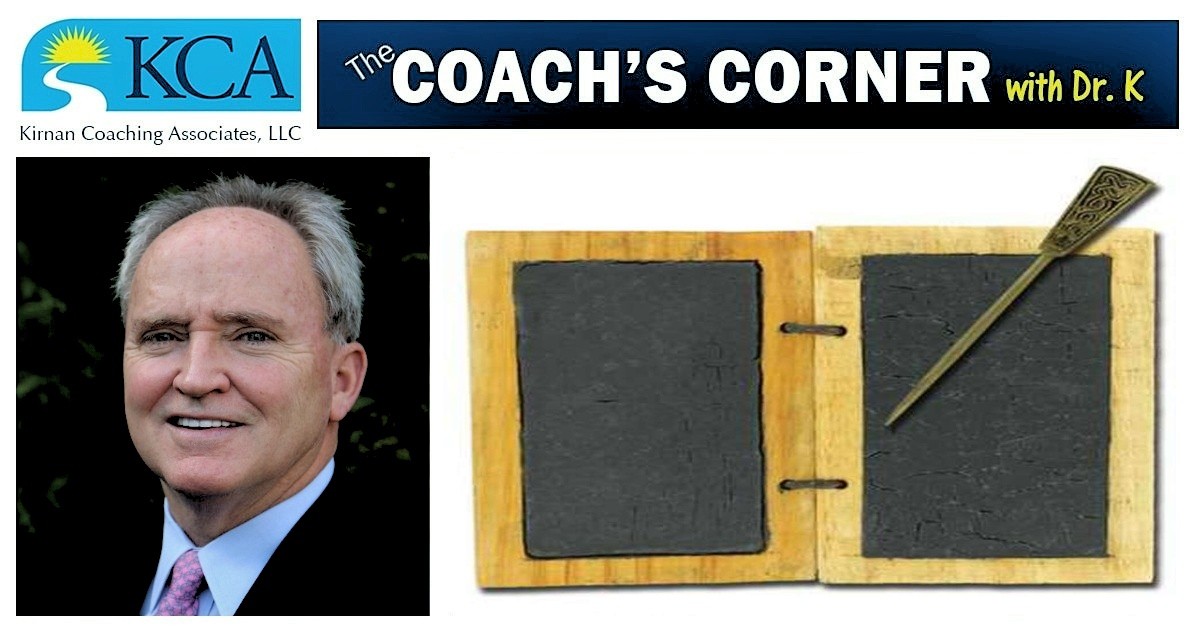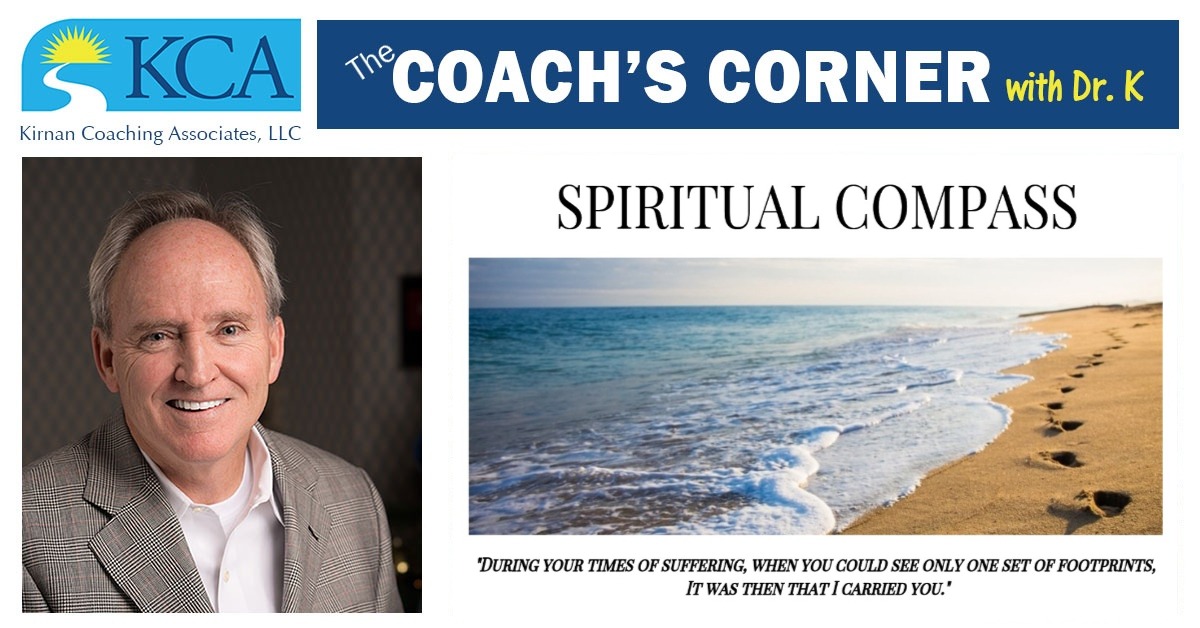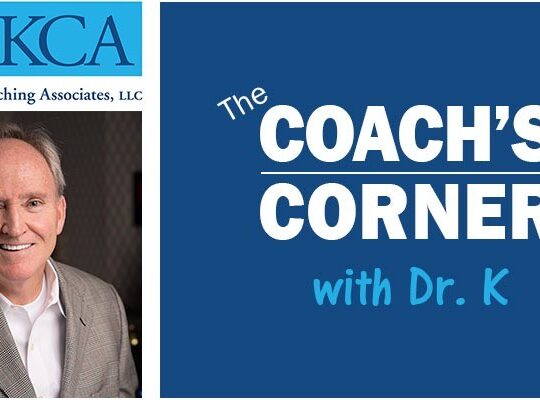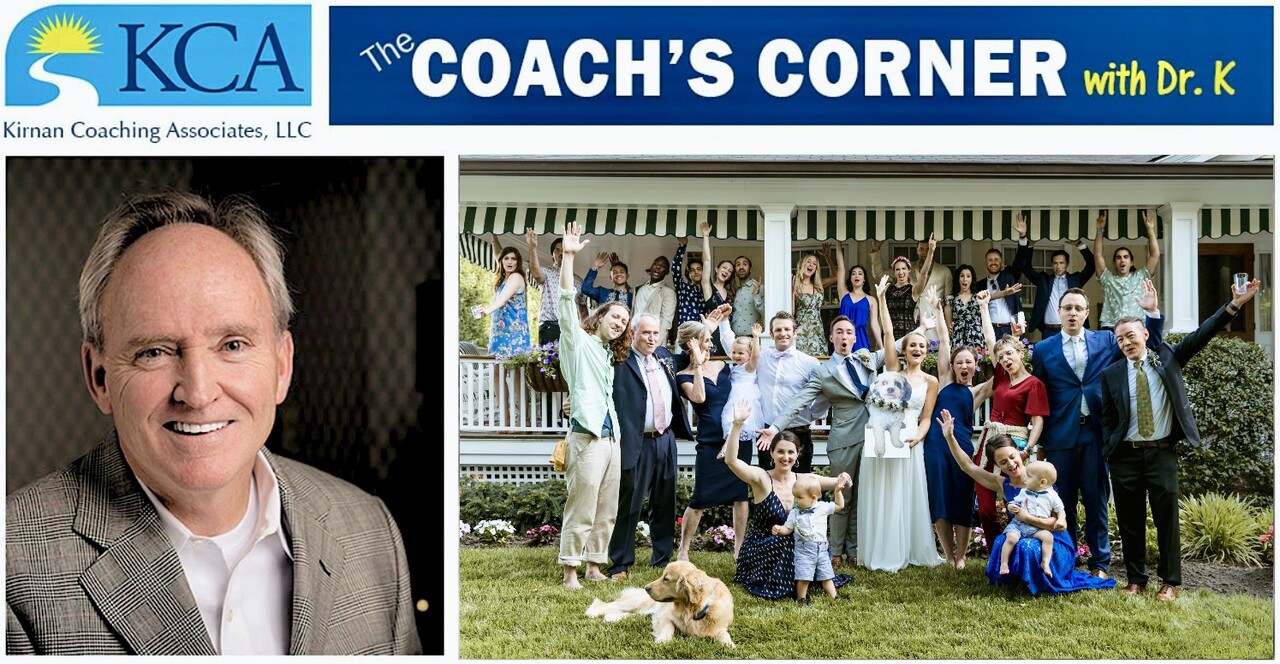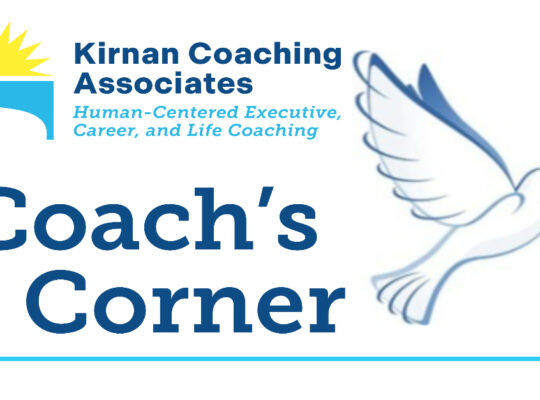Coaches take a sacred oath when we work with our clients and the oath in many ways embodies the kind of language found in the Ten Commandments we learned growing up as youngsters. In this case, the commandment or oath is simply — “Thou Shalt Not Judge”. Essentially, the oath is a reminder to never let our judgement as the coach enter into any part of the coaching engagement, whether it’s in the client planning and visioning process to formulate a SMART Goal (Specific, Measurable, Attainable, Realistic, Time-bound) or exploring what action steps and strategies can support one of the those SMART goals. Importantly, the most effective coaches listen intently and actively to what the client is willing to divulge in a setting that is both safe and comfortable and one that can facilitate the exploration of all possibilities and solutions to what may be holding them back in their life or career. Coaches use techniques like clarifying and paraphrazing to make sure that they are hearing exactly what the client is telling them. The best coaches ask really thoughtful, powerful questions that can provoke deep insight and new thinking that allows the client to evaluate their options in moving to action. Coaches must always be mindful that the client is always in control of the agenda for any coaching session and that often the client’s goals may change throughout the engagement process. Sometimes, the real issue or dilemma for the client is not the one that brought the client to the coach in the first place, so coaching is really all about what the client wants – it’s what they want to explore, not what the coach thinks or feels should be explored. And, it’s the client who ultimately determines what specific actions they may take in addressing their specific issues, not the coach. The coach can ask for permission to share an insight or experience that might help them in that exploration process, but again, the coach’s judgement should never enter into any part of the conversation.
Dr. K Ventures Into the World of Management
A number of years ago, I made a transition into the management arena. I had been a Wall Street analyst who had covered the global automobile industry for about 15 years and I was itching to try something new. I had always been heavily involved in the recruitment, training, and mentorship of new employees at each of the firms I had worked for since finishing my Ph.D. I had always thought that managing a large research department would be a really great challenge and so I was very fortunate to be hired as the Director of Equity Research for one of the major Wall Street firms.
Like any new person recruited into a new role, I was excited for the opportunity and I wanted to quickly establish my credibility and presence at the new firm. The goal and overriding objective was very specific and clear — namely, to significantly increase the visibility of the firm’s research department to the U.S. institutional client base. We developed very specific action steps to support that goal, including increased levels of support and training for our analysts and research associates; reassessing how our analysts would market their research product; sharing best practices to enhance the overall quality of the research product; and, working with other senior leaders within the firm to identify new opportunities for sector coverage that could both broaden and deepen the firm’s penetration in industry surveys.
My boss back then was easily the most talented and effective executive I had ever worked with in my career, but it was clear early on in my transition that we had different management styles and I started to believe that he was not supportive of how I was managing the department. Looking back, it all seems so clear now but essentially what I was doing is probably more common than people realize. Whenever we have some preconceived notion of what we think our reality is, we tend to look for any clue that may lend support to that supposition like a facial expression, body language, or even a comment that someone might make in a meeting that we perceive as a sign of disapproval or that we are falling short of expectations. I convinced myself early on that my boss was so displeased with my management style (which by the way he was not), that he would never have hired me if given another chance or worse yet, he would fire me from the position. In short, I had made all sorts of judgements that were not only inaccurate, but in retrospect were totally unfair to him as well as to myself. The experience said much more about me than anything else and revealed a deep fear of failure, of inadequacy, and of course all of those dreaded self-limiting beliefs we all possess whether we care to admit them or not.
After working together for over a year, my perceptions of my boss began to change significantly and I am truly grateful for that. My boss had reached out to me on a couple of different occasions to see how I was really doing. He knew I was new to the job – great self-awareness – but he also knew that I had a long commute from Princeton that would often take almost 4 hours out of my day and that as the father of three young children who took his responsibilities at home seriously, that I was struggling with balancing all of the competing demands an executive in an important position like mine faced. How do I make more room for family time? How can I do my job effectively and yet still find the time to see one of my children’s lacrosse, basketball or field hockey games, attend the teacher/parent day, the school play? In those moments, my boss showcased a side of his humanity that I had not allowed myself to see in my early days on the job. I now began to see someone who could not only be demanding, hard charging, and yes sometimes difficult to work with, but a person who had this incredible capacity to be empathetic, compassionate, supportive and very much in tune with all of the demands and pressures that my job encompassed. We worked together for 5 years and the relationship we had was stronger because I had learned to let go of a judgement I had made which was false, unfair, and not deserving of the person who in point of fact was the most effective, supportive, and talented executive I had ever worked with. We worked diligently to build the firm’s research presence; we worked through several difficult restructurings, especially a merger that involved substantial job losses. In the end, when I was restructured myself out of the position I had grown to love, he was the first person to call me and to offer his help as I began the transition into the next phase of my career. To this day I look back in amazement at all of the people like me he has helped get back on their feet. Wow, was my initial “judging” way off the mark. Memo to Dr. K — “Thou Shalt Not Judge”
Dr. K Tackles a New Industry — Education
The second experience I would like to share was in the field of higher education a few years ago. The story revolves around a former colleague that I had worked with in my capacity as the Dean of a business school. My former colleague was highly accomplished, both academically with an impressive list of scholarly publications and professionally as an entrepreneur. When I took on my leadership role at this institution a few years ago, I had been warned early on in my tenure that he was difficult to manage with strong opinions and a penchant for doing things his own way and on his own timeline much to the chagrin of university administrators.
Sure enough, my colleague and I had some difficult encounters but at least I felt that he was very sincere and well-intentioned in his principles and values and our relationship improved as I adjusted to the new role. In fact, he became one of my most vocal supporters among the faculty, particularly when I laid out in detail several strategic initiatives the institution needed to implement to improve its presence and footprint in undergraduate and graduate business education.
Well, I had not seen or heard from my colleague since the summer of 2012 when I had left that institution. I received an email from him in November 2013 informing me that the President and Board of Trustees of the University had finally implemented each of the specific recommendations I had made as I was leaving the institution. I was very grateful for his kind words, especially coming from a colleague who as I said at the outset, could be difficult and unwieldy at times. We agreed to get together for lunch and sure enough on the morning of our lunch date, there was a major snowstorm underway. I was going to meet him in south Jersey, about an hour’s drive from where I live, so I had the perfect excuse to cancel if I wanted to but I am so glad I braved the elements that day because of what was about to unfold.
After exchanging pleasantries and enjoying the great food at one of my favorite restaurants of all-time — The Capital Grille — we had some coffee and he asked me how I was doing. I hesitated at first but then began to open up about some of the great challenges I had been dealing with at that point in my life. I talked about how I missed my Dad more than ever — I missed his voice, his friendship, the conversation, and his long hugs when it was time to say goodbye. I talked about my worries for my Mom who was now alone in an assisted living facility and my wife’s parents, both of whom were struggling with loneliness, poor health and a loss of their independence; I relayed to my friend how difficult loss can be because of my realization that when you experience one loss in your life as I had with the recent passing of my Dad, you tend to relive over and over again all of the other losses in your life, none more unexpected or painful than the loss of my older brother Dennis when I was only 17 years old. And, that feeling of loss had been exacerbated by the sudden arrival of adulthood for each of my three children and the careers that would take each of them to the West Coast, something my wife and I were not prepared for and for that 3 hour time difference. Talking about these personal issues with anyone can be difficult but for some reason my friend made me feel so comfortable that I opened up without any fear of being judged for what I was going through.
But, an even greater gift that day was the one my friend gave to me. You see when I opened up about my struggles and the difficulties I was having in moving forward, he in turn opened up to me on some of his own struggles. My friend was an older gentleman in his early 70s and he mentioned that his wife had been in poor health for more than 2 years, something I knew a little bit about when we had worked together in Philadelphia. Then, my jaw dropped when he told me something much more personal that I will not divulge here but suffice it to say that it makes you realize how often we never really know the burdens that many of our colleagues, our friends and even family members may be carrying with them each and every day. The burdens we all carry don’t discriminate and they know of no boundaries, we just carry them throughout our day. We can hide those burdens at times, we can even suppress them, yes we can even compartmentalize them, but the reality is that we all carry burdens. The burdens borne by this fine person would entail some unexpected and major life changes for him and his wife at a time most men his age would be enjoying a well-deserved and fun-filled retirement. It’s not the life that my friend and his wife had envisioned at this stage of their life, but it’s what they had to do because they would always put the interests of their family first.
So as I sat there and listened to my friend on that cold and snowy Friday afternoon, I realized that I had an entirely new perspective on this person who I thought I knew. You see, once again, I had judged my former colleague largely on the basis of what others had told me about him and what I had observed in my own interactions with him. As I drove home that day in the snow, I felt energized by the interaction. My friend was far more than this highly accomplished Professor and successful entrepreneur. My former colleague was also an incredibly generous father and grandfather for his family, something that wasn’t easily discernible from any of the prior conversations we had at work. Through that sometimes cold exterior and gruff manner was a man who had the biggest heart and an incredible capacity to face adversity and all of the attendant pressures that come with raising not just your own family but your children’s family as well. And living with all of the burdens life had thrust on him, he found the capacity, the empathy, and the generosity to ask me how I was doing and what he could do to help me move forward. Wow, how lucky am I! Memo to Dr. K — “Thou Shalt Not Judge”
So what’s the moral or point in sharing these experiences? For me, its a humbling reminder that as coaches, we need to be forever mindful that there is no room or place for the coach to pass judgement on any client in a coaching engagement. Clients need to be supported in an environment that is not only free of the coach’s judgement, but one that promotes trust and safety; one that encourages possibility and exploration, deep thinking, introspection, new learning and hopefully greater insight and awareness on how the client can move forward in their personal and professional endeavors. The quote below says it all so beautifully: “When you judge someone else it doesn’t define who they are. It defines who you are”.
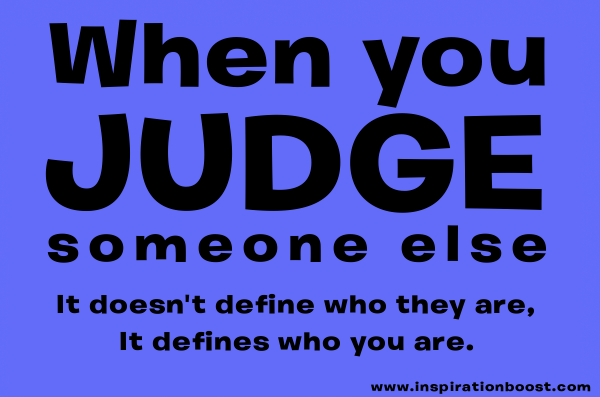
Compassion, forgiveness, understanding, empathy, giving people second chances are all truly compelling virtues in life. My friend is a bigger friend than I ever realized and I remain very grateful that two grown men on a cold and snowy November day could share life’s struggles together in a way that gave each of us inspiration and hope for the future.
Warm regards, Dr. K
